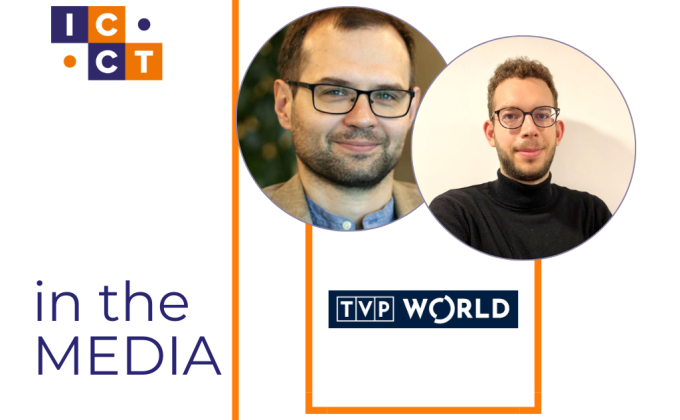Date: Thursday 20 February, 18:00 - 20:30
Venue: International Press Centre Nieuwspoort, Lange Poten 10 in The Hague
Agenda
17:45 – 18:00: Doors open, coffee and tea served
18:00 – 18:10: Welcome by Peter Knoope (ICCT)
18:10 – 18:40: Ansar al-Sharia's War with Tunisia by Daveed Gartenstein-Ross (Visiting Fellow)
18:40 – 19:00: Response by Dr. Hatem Ben Salem
19:00 – 19:30: Panel Discussion
19:30 – 20:00: Drinks reception
Meeting Report On Thursday 20 February, ICCT convened the seminar “Ansar al-Sharia’s War with Tunisia: An Escalating Conflict in Context” in Nieuwspoort, The Hague. During this seminar Associate Fellow Daveed Gartenstein-Ross presented the findings of his latest Research Paper on Ansar al Sharia Tunisia (AST) and described Tunisia’s descent into an internal war. In May 2013, Gartenstein-Ross noted that there might be “a short-term escalation in violence between the Tunisian state and AST”. Though this possibility was not being considered by most analysts at the time, by August the Tunisian government had declared AST a terrorist group and banned it. By the end of 2013 Tunisia had experienced both the bloodiest day in its security forces’ history and also three attempted suicide bombings. This presentation touched upon numerous questions: What are the implications of this war for Tunisia’s future? Is the conflict likely to spread to surrounding states, or to Europe? And, how should the West respond?
Daveed Gartenstein-Ross is an Associate Fellow at ICCT, and a senior fellow at the Foundation for Defense of Democracies in Washington, D.C. Responding to the presentation is Dr. Hatem Ben Salem, Professor of International Law and Geopolitics, former Ambassador to the United Nations, Secretary of State for Foreign Affairs and Minister of Education under former President Zine El Abidine Ben Ali.
ICCT’s Former Director Peter Knoope chaired the seminar and opened by noting that although Tunisia is not commonly in the headlines, there is no reason for lack of concern – Gartenstein-Ross’ paper very persuasively argues that AST is gaining ground.
Gartenstein-Ross began by explaining that AST’s mission first consisted of dawa (missionary activities), which they highly publicise through social media. However, in contrast to this, their organisational structure – just like that of many other terrorist organisations – is extremely opaque. The benefit of the latter is that it is hard to prove and assign blame to AST for any wrongdoing and it leaves the leadership of AST open to impunity. Gartenstein-Ross argued that the opacity was a deliberate decision on the part of the leadership.
He also went on to explain how the Tunisian government has reacted to AST. After the banning of their annual conference at Kairoun, there was a noticeable increase in security and the government began to greatly crack down on the group. This increase in security, which has been noticeable in just the last ten months, has had a positive effect with at least one bombing having been averted. While it is important to note that due to their opacity it is difficult to attribute clear blame to AST, the group is at the very least creating a permissive environment for violence.
Gartenstein-Ross maintained furthermore that AST is an unacknowledged al Qaeda affiliate. He also estimates that the constituency of AST’s followers is bigger than estimated. AST is generating a lot of enthusiasm among youth, but Gartenstein-Ross thinks that this is probably only a superficial affiliation. Now that the crackdown has been enforced, those superficial supporters have a lot to lose, and so, he argues, it is likely their support will dim.
In terms of the future, a serious question is if Al Qaeda in the Islamic Maghreb (AQIM) will intervene, what will happen if/when foreign fighters return, or what would happen in the event of a large-scale attack. All of these three things would affect the situation and are hard to predict.





